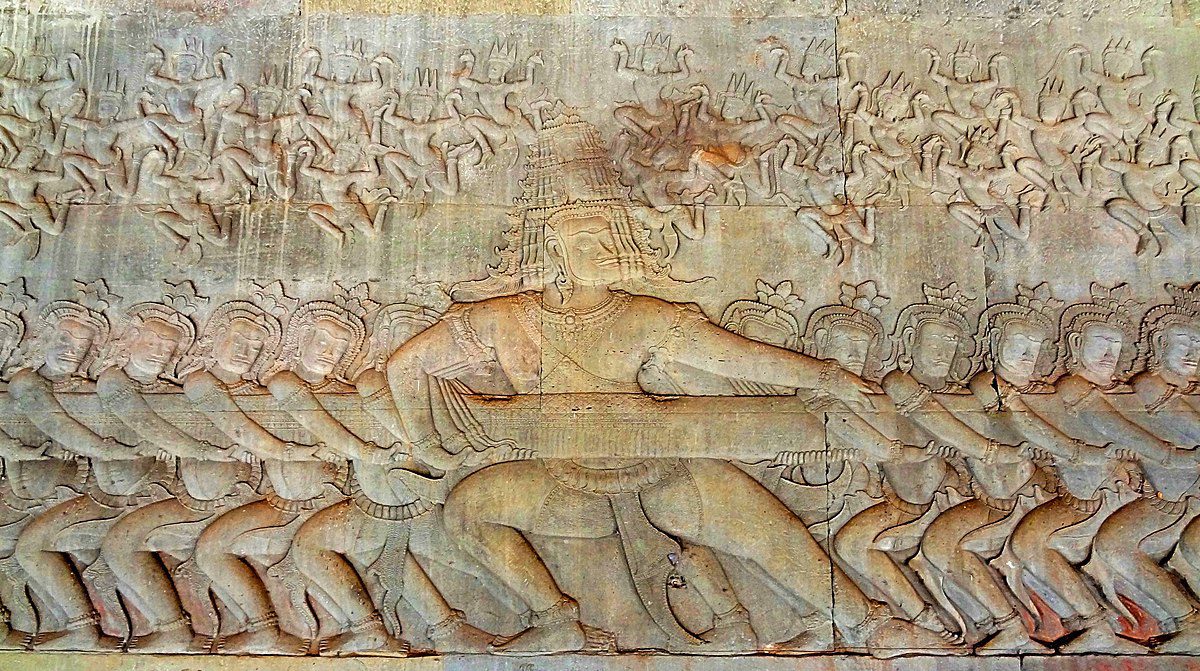India’s Hindu Gods and Greek Titans may share similarities in strength and power, but their virtues and beliefs are fundamentally different, according to an article. While Hindu gods such as Lord Vishnu and Goddess Lakshmi represent peace, harmony, and spiritual enlightenment and are worshipped for their ability to bring prosperity and good fortune, the Titans are often linked to chaos, destruction, and rebellion. Reincarnation is also significant in Hinduism, whereas Greek mythology does not believe in it. The article concludes that understanding these differences helps people appreciate the diverse cultures and beliefs that exist worldwide.
Hindu Gods vs. Titans: Understanding the Powers of India’s Most Beloved Mythological Beings
Introduction
India is a land of diverse cultures, religions, and mythologies. One of the most prominent mythologies of India is Hinduism, which entails the worship of various gods and goddesses. These deities have been revered for centuries and are believed to possess immense powers. However, there have been comparisons drawn between Hindu Gods and Greek Titans, wherein they have been equated in terms of strength and power. Let us take a closer look at these mythological beings and understand their powers.
Hindu Gods
Hinduism has a vast plethora of deities, each associated with a specific virtue or power. Here’s a list of some of the most prominent ones:
Lord Vishnu
Lord Vishnu is considered the preserver of the universe. He is known for his ten avatars or incarnations, which include Lord Rama, Lord Krishna, and Buddha. Vishnu is also associated with purity, peace, and prosperity.
Goddess Lakshmi
Goddess Lakshmi is the goddess of wealth, fortune, and prosperity. She is believed to be the consort of Lord Vishnu and is often worshipped during the festival of Diwali.
Lord Shiva
Lord Shiva is regarded as the destroyer of the universe. He is often worshipped as the supreme deity and is associated with peace, harmony, and spiritual enlightenment.
Greek Titans
The Titans are a group of mythological beings in Greek mythology. They were the children born to Uranus and Gaea, who ruled the earth before they were overthrown by the Olympian gods. Here’s a list of some of the most prominent Titans:
Cronus
Cronus was the god of time and was said to have overthrown his father Uranus to become the king of the Titans. He is often depicted holding a scythe or sickle, signifying his power over time and death.
Rhea
Rhea was the goddess of fertility and motherhood. She was often worshipped as the mother of the Olympian gods, and her name translates to “flowing stream.”
Atlas
Atlas was often depicted carrying the weight of the world on his shoulders. He was the son of Iapetus, one of the Titans, and was said to have been punished by Zeus for leading a rebellion against the Olympians.
Comparison and Contrast
There have been comparisons between Hindu Gods and Greek Titans in terms of their strength and powers. While both have been revered for their immense strength and abilities, there are some fundamental differences between the two.
Hindu gods are often associated with virtues such as peace, harmony, and spiritual enlightenment. They are worshipped for their ability to bring prosperity and good fortune to the worshippers. In contrast, the Greek Titans are often associated with chaos, destruction, and rebellion. They are respected for their ability to conquer and rule over others.
Another significant difference between the two mythologies is the concept of reincarnation. Hinduism believes in the concept of rebirth, wherein a person’s soul is reincarnated into a new body after death. Hence, the ten incarnations of Lord Vishnu are essential to Hindus as they signify the evolution of the world from its creation to its destruction.
On the other hand, Greek mythology does not believe in reincarnation. The Titans were believed to have been overthrown by the Olympians, who then ruled over the earth.
Conclusion
In conclusion, Hindu Gods and Greek Titans are two of the most powerful mythological beings known to mankind. While they share some similarities in terms of their strength and abilities, they are fundamentally different in their virtues and beliefs. Hindu gods are associated with peace and harmony, while the Titans are known for their power and rebellion. Understanding these differences can help us appreciate the diverse cultures and beliefs that exist in the world today.
